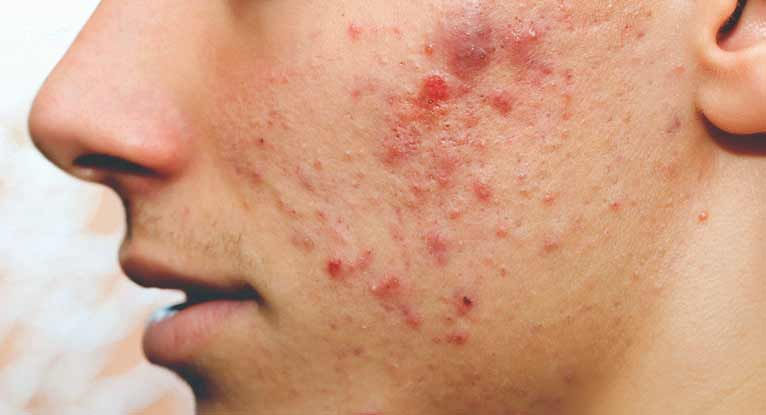What Is the Best Acne Treatment for Sensitive Skin?
- Laraib Naeem
- Aug 16, 2025
- 3 min read
Acne is a common skin concern that can affect people of all ages, but sensitive skin requires special attention when selecting the right approach. What is the best acne treatment for sensitive skin is a question many individuals ask, as harsh products can worsen irritation, redness, or dryness. Finding an effective solution that gently targets pimples, blackheads, and breakouts without causing additional discomfort is essential. In this guide, we explore how acne treatments work, types of options available, preparation, aftercare, and essential tips to ensure healthy, clear skin.
What Is Acne Treatment and How It Works?
Acne Treatment In Dubai(علاج حب الشباب في دبي) work by addressing the root causes of breakouts: excess oil production, clogged pores, bacteria, and inflammation. For sensitive skin, treatments must be gentle yet effective, reducing acne without irritating the skin. Common active ingredients include salicylic acid, benzoyl peroxide, niacinamide, and alpha hydroxy acids, which help to unclog pores, reduce inflammation, and prevent future breakouts. The right approach balances cleansing, exfoliation, and hydration to restore the skin's natural barrier while tackling acne effectively.
Understanding the importance of acne treatment lies in preventing long-term issues like scarring, dark spots, and persistent blemishes. Consistent and well-chosen products can significantly improve skin texture, reduce inflammation, and support overall skin health, especially for those prone to sensitivity.

Types of Acne Treatment for Sensitive Skin:
When exploring the best acne treatment for sensitive skin, various options are available depending on severity, skin type, and personal preferences:
Topical treatments: Gels, creams, and serums with gentle exfoliants and anti-inflammatory ingredients.
Cleansers and toners: Formulated to remove excess oil and impurities without stripping the skin.
Moisturizers: Lightweight, non-comedogenic formulas that soothe irritation and maintain hydration.
Spot treatments: Targeted solutions for active pimples and blemishes, minimizing the risk of spreading bacteria.
Natural remedies: Ingredients like aloe vera, green tea extract, and chamomile can calm inflammation while supporting healing.
Lifestyle adjustments: Proper diet, hydration, and stress management play an essential role in acne prevention and treatment effectiveness.
Preparation and Aftercare for Acne Treatment:
Preparation for acne treatment involves understanding your skin’s tolerance and choosing products suitable for sensitive types. Start with a patch test to ensure no adverse reactions occur. Avoid harsh scrubs or aggressive exfoliation, as these can weaken the skin barrier and worsen sensitivity.
Aftercare is equally important. Follow a consistent routine that includes gentle cleansing, light hydration, and sun protection. Avoid excessive touching of the face and refrain from using multiple active ingredients simultaneously, as this can irritate sensitive skin. Proper aftercare promotes faster healing, reduced inflammation, and prevention of new breakouts.
Ideal Candidate for Acne Treatment:
Sensitive skin requires careful consideration before starting any acne regimen. Ideal candidates are individuals who experience mild to moderate breakouts, redness, or irritation and are looking for effective yet gentle solutions. Even those with hormonal or adult acne can benefit from tailored treatments designed to calm inflammation and prevent scarring. Recognizing skin type, understanding triggers, and selecting appropriate formulations ensures the best results without compromising skin health.
How to Choose the Right Products?
Choosing the right products for sensitive skin involves evaluating ingredients, formulation, and delivery method. Look for non-comedogenic, fragrance-free, and hypoallergenic products that include soothing elements like niacinamide, ceramides, or hyaluronic acid. Consider user queries like “Can acne treatment reduce redness?” or “Which product is safe for daily use on sensitive skin?” to guide your selection. Gradually introduce one product at a time to monitor skin reactions and effectiveness, making adjustments as needed.
Risks, Benefits, and FAQs:
Every Acne Treatment(علاج حب الشباب) has potential risks and benefits. For sensitive skin, risks may include irritation, dryness, or temporary redness, particularly when using strong active ingredients. However, the benefits often outweigh these concerns, including clearer skin, reduced breakouts, improved texture, and boosted confidence.
Common user questions include:
Will acne treatment work on hormonal breakouts?
Yes, formulations with gentle anti-inflammatory ingredients can help.
How soon will results appear?
Most gentle treatments show improvement in 4–6 weeks with consistent use.
Can acne treatments be combined with makeup?
Yes, non-comedogenic formulas are safe to layer under cosmetics.
Should I change my routine seasonally?
Adjusting hydration and sun protection based on climate helps maintain effectiveness.
Conclusion:
In conclusion, the best acne treatment for sensitive skin focuses on gentle, targeted solutions that address the root causes of breakouts while maintaining the skin’s natural barrier. Selecting appropriate formulations, adhering to a proper routine, and understanding preparation and aftercare can significantly improve skin health. Incorporating soothing ingredients, effective cleansers, moisturizers, and spot treatments ensures safe and lasting results, allowing sensitive skin to remain clear, calm, and healthy. Consistency and careful selection of products are the keys to achieving the best outcomes for acne-prone sensitive skin, empowering you to enjoy smoother, blemish-free skin confidently.



Comments